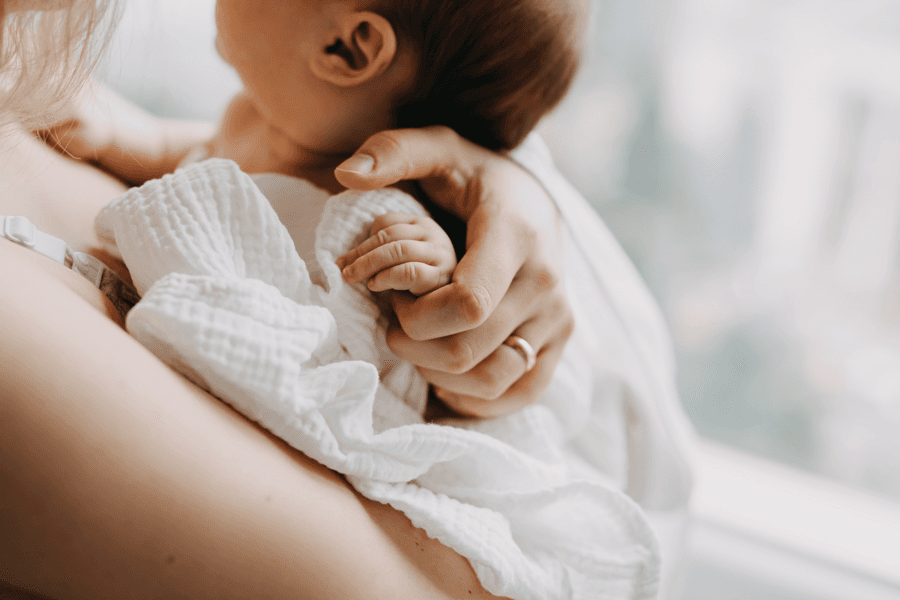Many women view their pregnancy as a safe period during which they receive a great deal of support and care. They meet regularly with their doctor or midwife and have close contact with the healthcare system throughout their pregnancy. But many women experience a feeling of loneliness when they return home with their baby. There’s a sense that a great deal of time was devoted to preparing for the birth itself, while the postnatal period is neglected. A notion of being on their own without any support. But that’s not the case. You actually have access to a wealth of support after the birth. This is a good time to reach out to family and friends for help with child care and support.
Support the first week
The staff at the hospital or birth center are responsible for your health and that of your baby during your hospital stay after birth. Once you have returned home, you may reach out to your pediatrician or healthcare provider for any further questions or concerns regarding yourself or your baby.
Most women stay in the hospital up to 2 days after vaginal delivery and up to 4 days following a c-section. Some places allow you to return home even sooner if both you and your baby are recovering well.
If you need advice and support with breastfeeding the first few weeks, call your pediatrician or the lactation support line. Most hospitals have lactation consultants with available support after hours.
There are a number of volunteer organizations dedicated to supporting breastfeeding mothers. Staffed by motivated volunteers, these organizations and groups offer information, support and personal breastfeeding counselling over the phone, via email or in person. Ask your care provider for more information or check with your local community.
In case of an emergency
After being discharged from the hospital or birth center, you should contact your healthcare provider or seek emergency care immediately if you experience any of the following symptoms:
- Sudden and severe headaches that do not get better after taking pain medication. Blurred vision or dizzinessThat may accompany the headache. This may be a sign of high blood pressure or postpartum preeclampsia.
- Fever of 100.4 degrees F or greater after childbirth may be a sign of infection.
- Difficulty urinating or painful urination after the first few days may be a sign of a urinary tract infection.
- Foul-smelling vaginal discharge and any sudden drainage from a vaginal repair or C-section incision may indicate an infection.
- Heavy vaginal bleeding that soaks a large sanitary pad every hour or less, with or without clots, may be a problem.
- Thoughts of hurting yourself or your baby requires immediate attention by your healthcare provider. Most new moms feel some degree of mood swings. You may feel elated one moment and overwhelmed the next. However, if you experience excessive crying, frustration, anger, or feelings of being overwhelmed and unable to care for yourself or your child, you may have postpartum depression and should talk to your healthcare provider.
- Pain in the chest, legs, or feet could be a sign of a blood clot, such as deep vein thrombosis, and should be checked out.
- Prolonged painful perineum may be a sign of infection. Some pain and itching are to be expected as the vaginal area heals.
- Persistent abdominal pain requires evaluation by your healthcare provider. As your uterus shrinks back to its pre-pregnancy size and your organs shift back to their original place, some pain and cramp will occur.
- If you are having trouble breathing with or without chest pain, you should be seen by a healthcare provider immediately. It could be a symptom of a pulmonary embolism caused by a blood clot in your extremities.
- Painful sore breasts with flu-like symptoms and a fever of 100.4 may be a sign of mastitis. Mastitis is an infection of the breast tissue. As your milk comes in, most women experience a degree of pain or discomfort in their breasts and it's hard to know what's normal.
If you are feeling sad
As a new parent, you will go through periods of happiness, joy, sadness and frustration. Despite everything to be grateful and excited for with a new child, the baby blues can set in. This can cause you to feel sad or cry when you normally wouldn’t. Feeling low a few days after the delivery is called having “the baby blues” and is normal. This is a temporary condition that arises due to the enormous hormone fluctuations. Your feelings and mood can shift rapidly, swinging from happiness to sadness to melancholy in just a few minutes. You might even start to cry all of a sudden although you are happy. That said, feeling low after the delivery can also be a symptom of depression. If your anxiety and sadness does not pass after a few days—and instead gets worse—it is important that you contact your care provider to get the right help.
Sources:
- Kaplan, A. (red.) (2009). Lärobok för barnmorskor. (3., omarb. uppl.) Lund: Studentlitteratur.
- Myles, M.F., Marshall, J.E. & Raynor, M.D. (red.) (2014). Myles textbook for midwives. (16th edition). Edinburgh: Elsevier.
